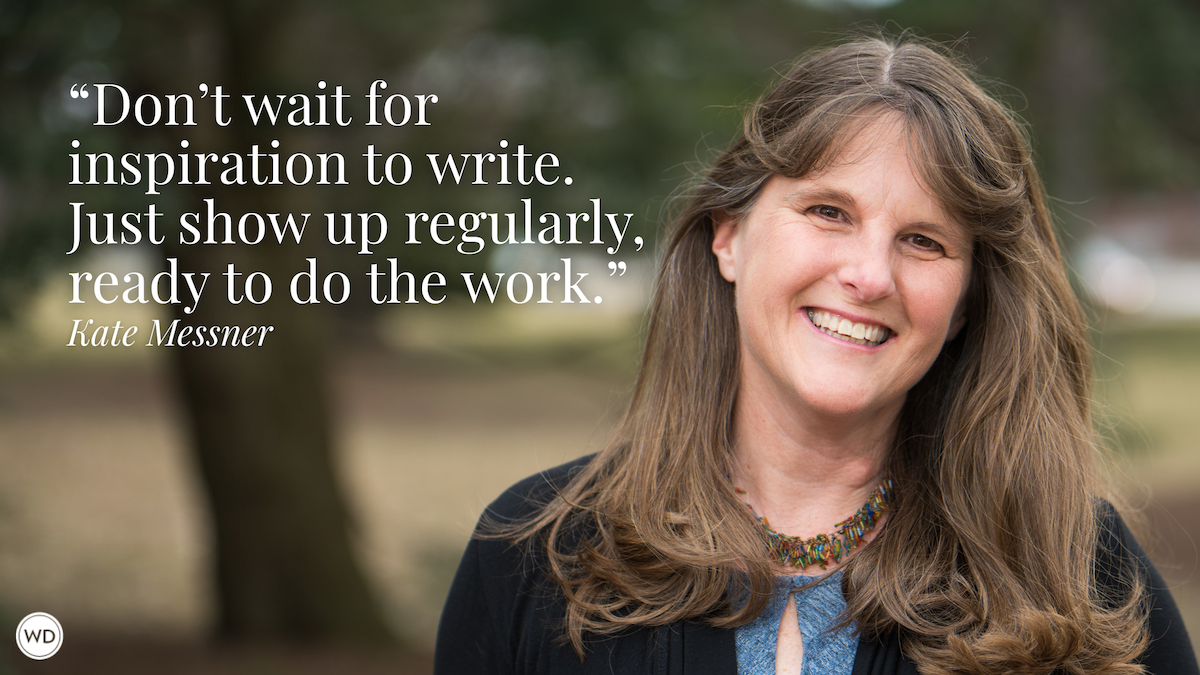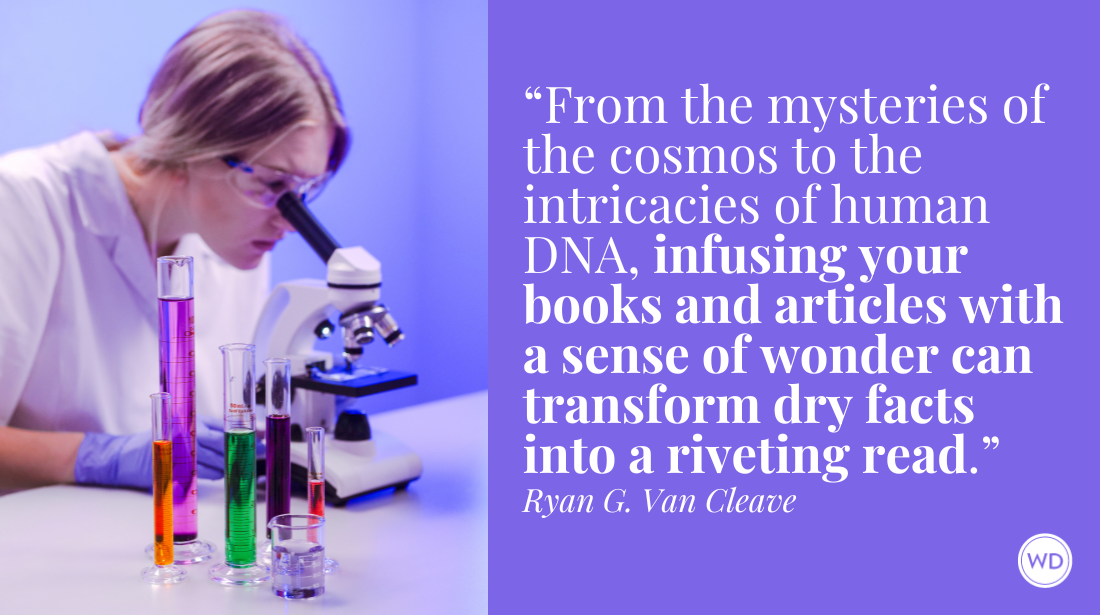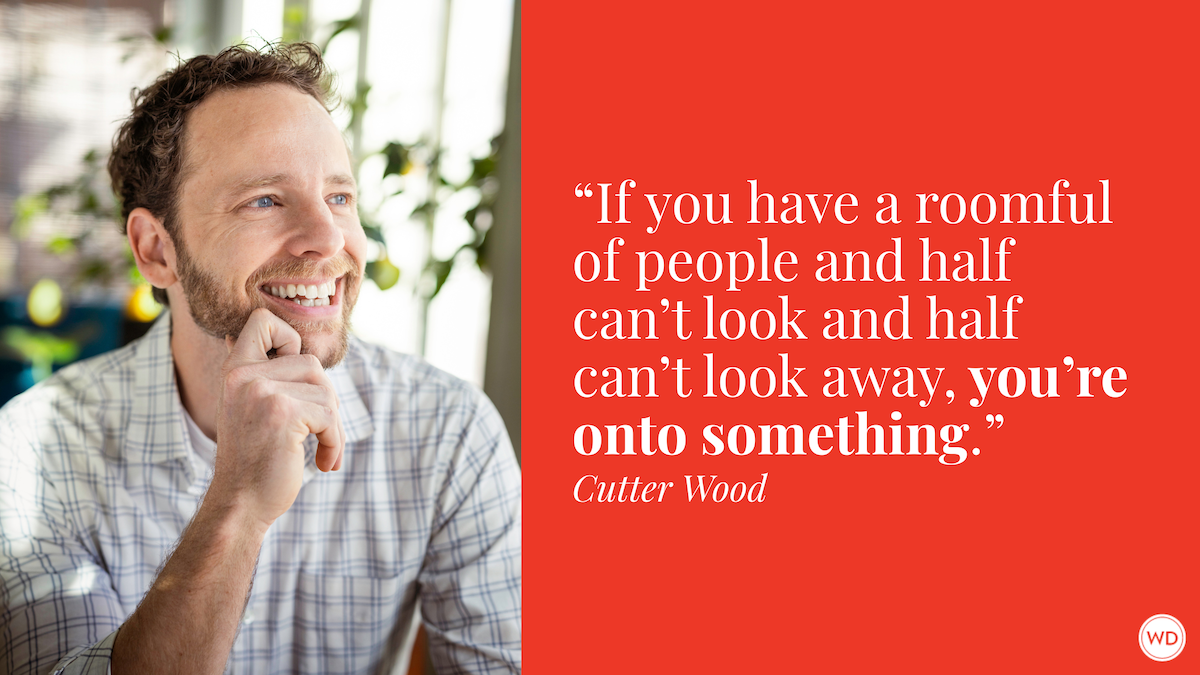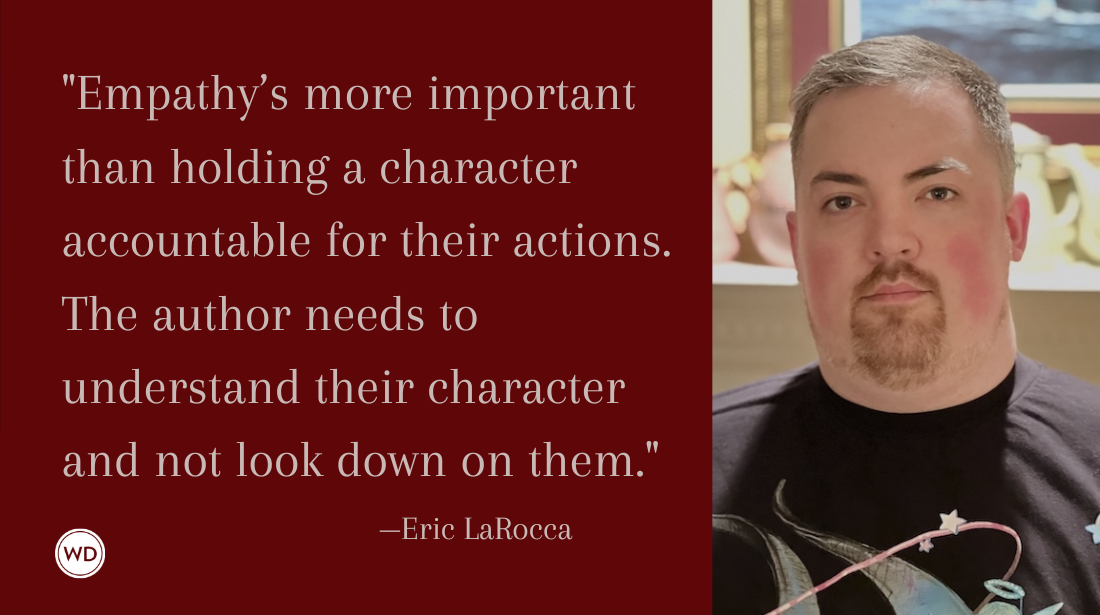A Recipe for Building a Cookbook Platform
Freelance writer and cookbook author Lisa Howard shares the ingredients for creating a meaningful and long-lasting platform for cookbook writing.
[This article first appeared in the November/December 2024 issue of Writer's Digest magazine.]
One way or another, everybody thinks about food every day: eating food, cooking food, shopping for food, going out for food. If you’re an aspiring cookbook author, then you have plenty of opportunities to build your platform, ranging from writing culinary newsletters to teaching cooking classes. You can join groups that overlap with your food focus, like a mycological group if you’re writing about mushrooms or a gardening club if you’re writing a book centered on farmer’s market finds. “If you’re the food expert creating that kind of content in an adjacent group, then you’re not competing against your colleagues—you’re standing out as the expert,” says Sally Ekus, president and lead agent of The Ekus Group, a literary agency specializing in cookbooks and culinary works. Agents, publishers, and readers all want trusted experts who are both passionate and professional. For an eventual cookbook author, that means establishing an audience and interacting with their audience. Building a community = building a platform.
Getting Started
First, you’ll need to find your people. Dianne Jacob, author of the perennially popular Will Write for Food, highlights the significance of figuring out what niche you’ll fill. “A cookbook should not just be your overall philosophy of ‘I love food,’” she points out. “It needs to have a focus. It’s not about everything—you need to decide what’s going to be your specialty. That’s a foundational question to ask yourself.” Whether you’re drawn to a particular cuisine or ingredient, or you have expertise with a medically driven way of eating, seek out those existing subgroups and see what they’re talking and writing about. Who do you want to help? Let your curiosity get the better of you! Read books, ask questions in forums, show up at library talks, join associations in your field of interest (and not just ones aimed at authors), and follow your favorite experts on their social media feeds. Then start sharing what you’ve learned.
“You have to start somewhere,” Ekus says. “Think of it as a pie. Each slice of that pie is a part of your platform and your community. You usually don’t put your head right into the pie unless you’re participating in a pie-eating contest at the fair—you’re going start with one slice at a time. If you start by grabbing a fork and a knife and one slice of your platform pie, the next thing you’ll realize is that you’re sitting next to somebody who’s doing the same thing. So, then you share a piece of your pie with the person sitting next to you, and all of a sudden, you’re building your community.”
Establishing Your Brand
Inevitably, as you start sharing what you’re learning and helping your audiences, you’ll figure out your style. Kathy Hester, author of 10-plus vegan cookbooks and an online cooking instructor with a dedicated fan base, says that part of her brand is making everyone feel cozy and seen as much as possible. She’s also a big believer in always being willing to try new ways to connect with audiences. “In the beginning,” she says, “you don’t know what you’ll ultimately be good at and enjoy, so be open-minded.” Case in point for her: although she had long said she’d never do live video, now it’s her bread and butter, and she has hosted two live cooking classes online every month for more than four years. Not only does she love doing it, she’s also able to maintain a strong connection with her audience—she gets to hear what’s on their minds and what they’d like to know more about. It’s a classic example of passion uniting with purpose. Figuring out what kind of atmosphere you want to create will help you figure out what exactly you’re offering your audiences and readers.
Building Your Platform
Another way to build and define your presence is to write. If you don’t have any bylines under your belt, pitch local magazines. Start a newsletter even if you just persuade a few friends to subscribe to it. Start a blog and ask friends to make some of your recipes and give you feedback. Getting feedback is important—recipe writing is a technical skill, and you’ll get better at it faster if people tell you what’s working and what isn’t. (If you know anyone who’s writing their own cookbook, volunteer to be a recipe tester and give them feedback.) Putting words to page will force you to home in on your core message.
Speaking is much like writing in that you need to map out what you want to say, convey your ideas effectively, and be concise. Odds are, you can pair your food focus with topics that would interest community groups, library patrons, and other local audiences. While public speaking might seem mildly terrifying at first, if you’re talking about a subject you’re passionate about, you’ll likely lose yourself in your message and have a great time sharing your thoughts—it won’t be about you, it’ll be about however you’re trying to help your audience. Are you an avid gardener and cook? Do a class on how to successfully grow herbs, veggies, edible flowers, and fruits at your community center. Love food history? Approach your library about doing a program that combines food lore with cooking tips. Just like teaching cooking classes, a big benefit to doing speaking engagements is getting immediate feedback in the form of questions and comments, all of which will give you ideas for future talks and books.
Expanding Your Skills
As you continue to find and interact with your audiences, keep sharpening your skills. “Cookbook writing is about being a good writer,” says Jacob. “The same tools and techniques you use as a writer are relevant in food writing.” Ekus agrees with that, pointing to Jane Friedman’s website and newsletter as being go-to resources for writers regardless of genre. For cookbook-centric resources, she recommends the “Everything Cookbooks” podcast (hosted by four seasoned cookbook authors) and Raeanne Sarazen’s The Complete Recipe Writing Guide. Ekus herself runs a Facebook group called How to Be a Cookbook Author, which provides budding and established authors a place to ask questions, get resources, and connect with people.
Professional associations like the International Association of Culinary Professionals likewise offer ways to network and connect—another piece of that “platform pie.” Or you could work with an experienced cookbook editor to learn how to write recipes or get coached on how to write a cookbook. If you’re struggling with speaking in front of audiences, join an improv group! That’ll be a fun way to get comfortable speaking from a podium. Toastmasters International likewise offers welcoming ways to learn how to present and communicate more effectively.
.....
As you continue to build your platform and your skill set, think longevity—you want to like what you do for a long time. It’s what Ekus refers to as the “art and science” of publishing. “The science is how to build your platform,” she explains, “and then the art is how to continue to have a platform, which is networking, building community, and cultivating relationships. It’s people thinking of you when they’re thinking about whatever your topic of expertise is. The art is all of the nuances about publishing.” And it’s about sharing the pie. Always remember to share the pie.








